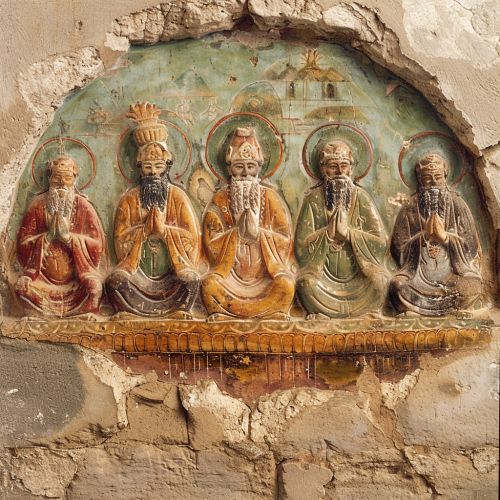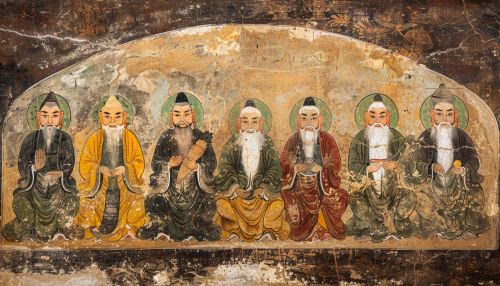Saptarishi
Overview
The Saptarishi (Sanskrit: सप्तर्षि, the "Seven Sages") are a group of seven rishis who are extolled in many scriptures of the Hindu tradition, including the Mahābhārata, the Purāṇas, and the Brāhmaṇas. They are considered to be the patriarchs of the Vedic tradition, and their teachings form the basis of the Vedic religion.


Historical Context
The Saptarishi are mentioned in the ancient Indian texts, the Brāhmaṇas, and the Mahābhārata. They are also mentioned in the Purāṇas, which are a collection of ancient Indian scriptures that detail the history of the universe from creation to destruction, genealogies of kings, heroes, sages, and demigods, and descriptions of Hindu cosmology, philosophy, and geography.
The Seven Sages
The seven sages are named in the Brāhmaṇas as Kashyapa, Atri, Bharadvaja, Vishvamitra, Gautama Maharishi, Jamadagni, and Vasistha. However, the Mahābhārata and the Purāṇas provide different lists of the seven sages, reflecting the fact that the identity of the Saptarishi changes with each manvantara (cosmic age).
Significance in Hinduism
In Hinduism, the Saptarishi are revered as the mind-born sons of the creator god Brahmā. They are believed to be the originators of many mantras in the Vedas, the ancient Indian scriptures that form the foundation of Hindu philosophy and religion. The Saptarishi are also believed to be the mediators between the gods and humans, conveying the divine will to humans and offering human sacrifices to the gods.
Astronomical Significance
In Indian astronomy, the Saptarishi are identified with the constellation Ursa Major, also known as the Big Dipper or the Great Bear. This constellation is visible throughout the year in the northern hemisphere and is one of the most recognizable constellations in the night sky.
In Popular Culture
The Saptarishi have been depicted in various forms of Indian art and literature. They are often shown as being in the company of the Hindu god Viṣṇu or the goddess Sarasvatī, the deity of knowledge and learning.
